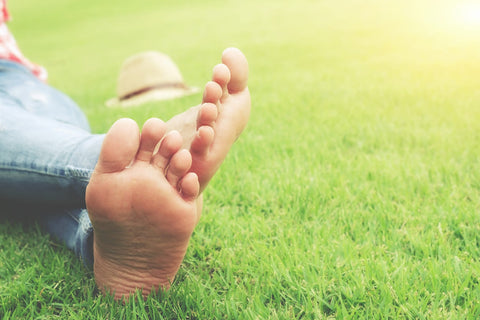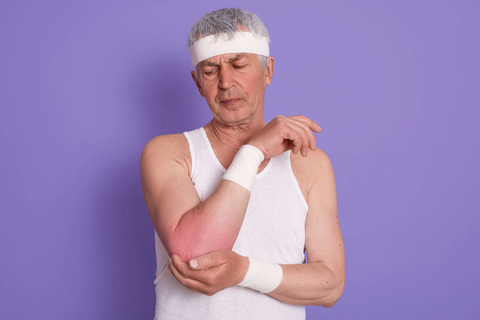Athlete's foot or tinea pedis is a fungal infection caused by dermatophytes which feed on keratin found in the skin. It can infect one or both feet, causing itchiness, inflamed skin, burning/stinging, blisters and dry/scaly skin.
Athletes foot is triggered by sweating heavily in enclosed footwear, as it is highly contagious it can spread by sharing mats, towels, bed linen and clothes/shoes with someone who has athletes' foot. Also, from walking barefoot in public areas such as a swimming pool as the warm, humid conditions favour dermatophytes growth.
Tips to prevent athlete's foot
- Keep your feet clean and dry
- Change socks regularly
- Wear well ventilated footwear
- Don’t wear the same pair of shoes every day
- Don’t walk barefoot in public areas
- Don’t share shoes
Essential Oils
Treatment usually involves over the counter antifungal cream, but more severe infections may be treated through antifungal pills or a combination of both. Due to increasing antimicrobial resistance to antifungal creams/pills, essential oils may be a cheap, efficient alternative with less side effects.
- Lavender oil is known for its potent antimicrobial and antioxidant properties. It is believed the fungal cells are destroyed as the essential oils damage the cell membrane
- Research on Tea Tree oil has highlighted its ability to be an antifungal agent
Do not apply essential oils directly to the infected area, ensure you mix them with a carrier oil such as coconut oil and use with caution (observe for any reactions).
Immune System
As the fungal infection can be caused by low immunity and improved immunity can help fight the infection, here are some tips to improve your immunity.
- Probiotics are a great way to improve immunity as they help the gut balance good and bad bacteria within the gut, helping the body to absorb more nutrients to protect against any nutrient deficiencies affecting our immune system
- Garlic has antifungal and antioxidant properties, possibly protecting against infections
- Limit processed, high sugar, refined flour and unsaturated fat food products and stimulants such as alcohol as these all affect immunity negatively
- Supplements that contribute to the normal function of the immune system include Vitamin C, D, B6, B9, B12 and Zinc
- Exercise boosts our immunity
- Getting enough sleep allows the body to repair itself as we sleep
Sources
- Athlete's foot - Diagnosis and treatment - Mayo Clinic
- Athlete's Foot: Common Signs + Natural Treatments - Dr. Axe (draxe.com)
- Lavender oil has potent antifungal effect -- ScienceDaily
- Image credit: Image by mindandi on Freepik
Any information or product suggested on this website is not intended to diagnose, treat, cure, or prevent any medical condition. Never disregard medical advice or delay in seeking it because of something you have read on this website. Consult your primary healthcare physician before using any supplements or making any changes to your regime.




